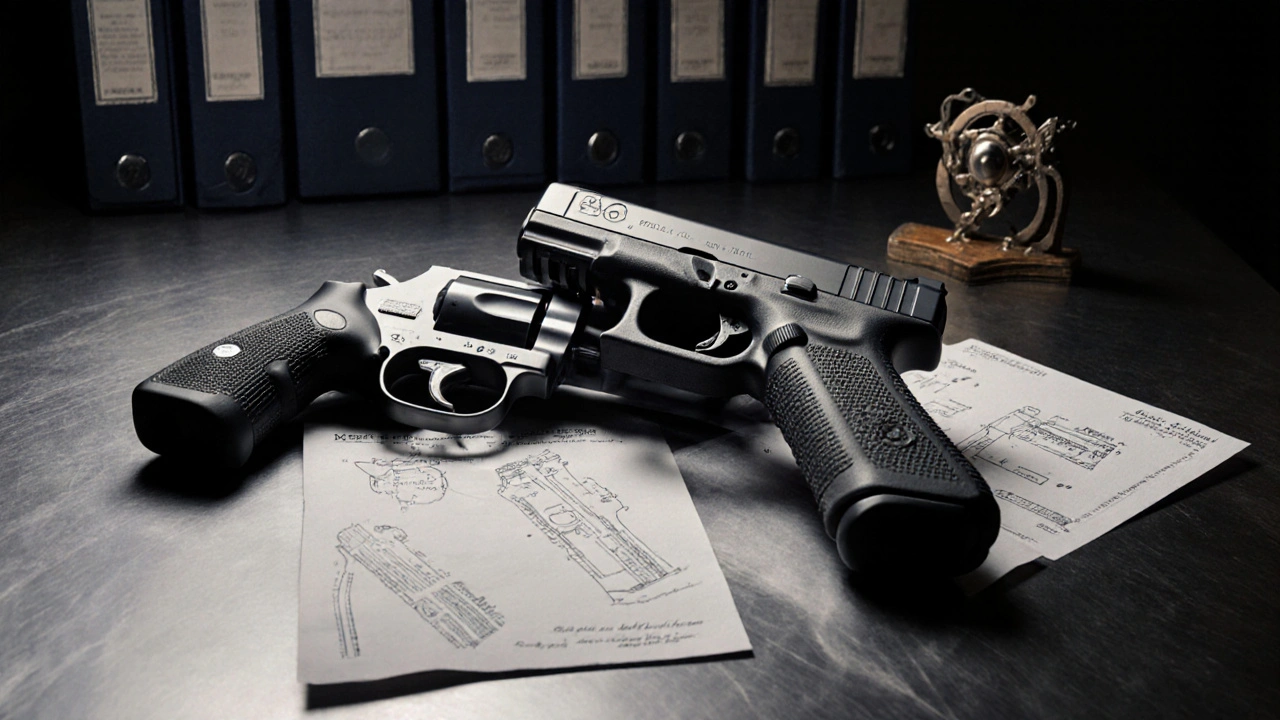Why Do Cowboys Prefer Lever Action Rifles?
October 27 2025Smith & Wesson Legal Battle: What Shooters Need to Know
Did you hear that a major gun maker is in court again? Smith & Wesson (S&W) is fighting a federal lawsuit that could change how some pistols are sold and owned. If you own a S&W pistol or are thinking about buying one, the outcome will affect you directly. Let’s break down the case in plain language and see what it means for everyday shooters.
The Core of the Dispute
The lawsuit began when the Bureau of Alcohol, Tobacco, Firearms and Explosives (ATF) tried to classify several S&W models as "machineguns" under the National Firearms Act. That classification would require owners to register the guns, pay a hefty tax, and face strict storage rules. S&W argues the ATF’s move is based on a shaky technical reading and that the guns in question are truly semi‑automatic, not fully automatic.
At the heart of the argument is how the barrel and slide interact. The ATF says a particular component—often called a "quick‑action" system—lets the gun fire faster than a normal semi‑auto, which they claim crosses the legal line. S&W’s engineers counter that the mechanism still requires a separate trigger pull for each shot, which is the definition of a semi‑automatic firearm.
How It Affects Everyday Shooters
If the court sides with the ATF, owners might need to fill out paperwork, pay a $200 tax stamp, and keep the gun in a locked safe. That could also raise insurance costs and make buying certain S&W models harder. On the flip side, a win for S&W would keep the current registration process simple and preserve the market for those popular pistols.
For those who haven’t bought a S&W yet, the legal fight creates uncertainty. Dealers may hold back inventory until the case settles, and prices could swing up or down depending on the verdict. It’s a good idea to talk to your local shop about how they’re handling the situation and whether they recommend waiting or buying now.
Current owners should double‑check their paperwork. Even if you’ve never had an issue, the court could ask for proof of purchase or a background check after a ruling. Keeping your receipt, serial number, and any registration documents handy will save headaches later.
Another practical tip: stay tuned to official updates. The case moves through district courts and may go up to appellate courts. Email newsletters from trusted gun law sites or follow the US District Court’s docket for real‑time info. Knowing the timeline helps you plan training, competitions, or any trades you’re considering.
Beyond the legal specifics, the case highlights a larger trend—federal agencies are pushing harder on firearm classifications. Whether you’re a casual target shooter or a competitive competitor, you’ll likely see more legal battles in the next few years. Understanding the basics now puts you in a better spot when new rules appear.
In short, the Smith & Wesson legal battle is more than a headline; it’s a direct line to your shooting hobby. Keep your paperwork organized, stay informed, and talk to your dealer about any changes. That way you can keep shooting safely and legally, no matter how the courts decide.
 30 Sep
30 Sep
Glock vs. Smith & Wesson: The Lawsuit Explained
Explore whether Glock sued Smith & Wesson, the patent and trademark claims involved, court updates, and what the dispute means for gun owners and the industry.
Read More...




